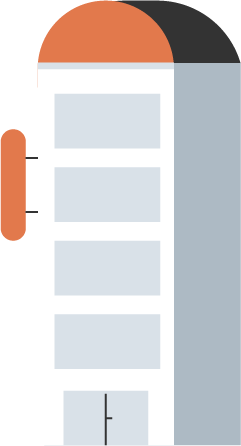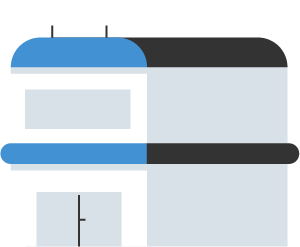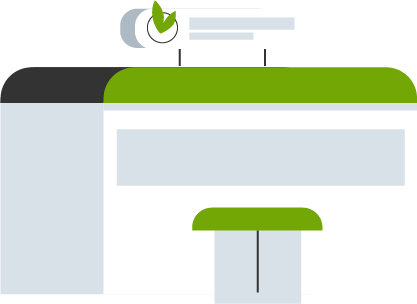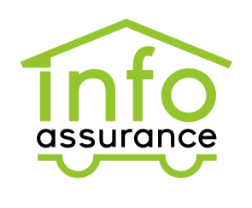- Home
- Business insurance
- Insuring an income-generating property
Insuring an income-generating property


In the insurance sector, a personal home insurance policy can usually cover a one- to six-unit property. However, properties with seven or more units must be covered under a commercial insurance policy.
It is important to distinguish between these two types of insurance contracts, considering these diferences for example:
- Under a commercial insurance policy, explosion risk resulting from water or steam pressure vessels, such as boilers used to heat the building, is excluded. To be insured, you must purchase “boiler and machinery” coverage.
- Under an individual home insurance policy, water damage resulting from plumbing problems is covered, which is not the case under a commercial insurance policy. To avoid bad surprises, talk to your insurer or broker to find out what is and isn’t covered in this type of situation.
Look into purchasing coverage a few weeks ahead of time to make sure the risk can be appropriately evaluated.
Criteria used to establish the premium
The factors normally used for home insurance also apply to a property with seven or more units: age of the building, construction material, location, heating system, number of units, etc.
There are also other criteria:
- Presence or absence of leases
- Type of rental (monthly, annual, students, lodgers, etc.)
- Presence of a janitor/manager
- Owner’s building management experience
- Presence of protection systems (smoke detectors, sprinklers, fire doors, controlled access, etc.)
In some cases, the insurer may inspect the premises before insuring the property. Depending on the result of the inspection, you may be asked to make changes to the building for safety reasons.
Choices
The risk of losing a lot of money as a result of a loss is very real. The best way to limit such an impact is to purchase an insurance policy that provides the appropriate coverage.
The owner of building with seven or more units can purchase Named Perils or the broad coverage.
- The Named Perils form covers property against certain perils specified under the policy.
- The Broad form covers all perils other than those specifically excluded under the policy. It’s more expensive, but you’ll have greater protection.
Do not forget civil liability
It’s also strongly recommended that you purchase general civil liability coverage for damage that third parties may suffer from. For example, if an electrical problem causes a fire that destroys tenants’ property, the owner could be held liable. Your civil liability coverage would then compensate the tenants for the loss of property and the damage suffered.
Insure the rental income
Coverage for rental income should also be purchased. There are also several options, "Named perils" or "Broad” form as well as a so-called "extended" insurance.
This guarantees reimbursement of rental income if a loss were to make the building uninhabitable. The insurance amount must correspond to 100% of the annual rental income.
Additional coverage
Various endorsements are available. Water damage is the most frequent and likely risk. It’s essential to purchase the endorsements available, such as sewer back-up, flood or water infiltration.
Other specialized insurance products adapted to activities related to rental properties may also be offered.
Tenant’s property
Tenants are responsible for ensuring their belongings and their civil liability. Many ignore the importance of civil liability insurance which would protect them, if they unintentionally cause damage to the building or to the property of other occupants.
And yet, only 37% have home insurance. There are a number of reasons for this, but some mistakenly believe that it’s the building owner’s insurance that will compensate them in the event of a loss.



















